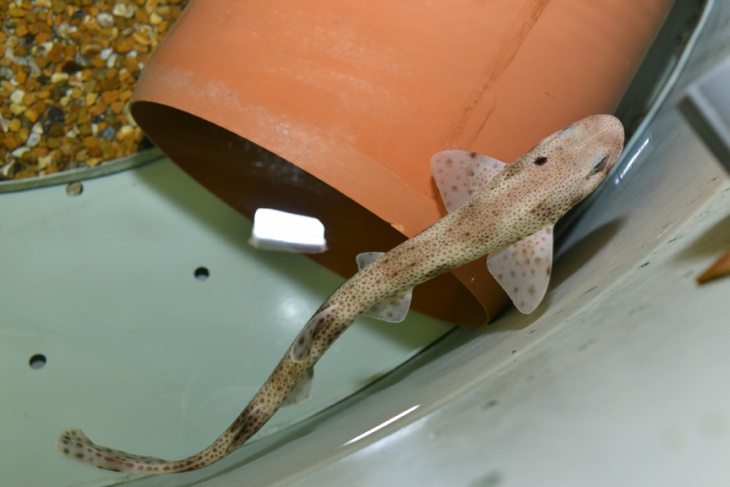Supervisors:
- Helen Dooley (IBES)
- Chris Secombes (IBES)
Full time PhD student:
- Rita Pettinello 2013-2017
Cartilaginous fish (sharks, skates, rays & chimera) diverged from a common ancestor with other vertebrates approx. 450 million years ago. They are the most ancient lineage to share the core components of the mammalian adaptive immune system (AIS):
- Antibodies (Igs)
- T cell receptors (TCRs)
- Major Histocompatibility Complex (MHC)
- RAG-mediated somatic recombination
Cartilaginous fish also have a number of unique features such as the novel antibody isotype IgNAR and the shark-specific, Leydig and epigonal immune organs. Previous studies have shown that sharks produce a robust and long-lived response following immunisation; however, we have little knowledge of where, and how, the cells of the immune system interact in order to generate this response.
This project aims to investigate in Small Spotted Catshark Scyliorhinus canicula:
- Where, and how, cartilaginous fish immune cells interact to produce an adaptive immune response
- If cartilaginous fish lymphocytes interact in a similar way to those in higher vertebrates
- In which tissues this interaction happens
- Comparison expression of antibodies with other cartilaginous fish.
By studying the shark immune response we hope to shed light upon how the AIS initially evolved and has become the sophisticated AIS found in mammals.

